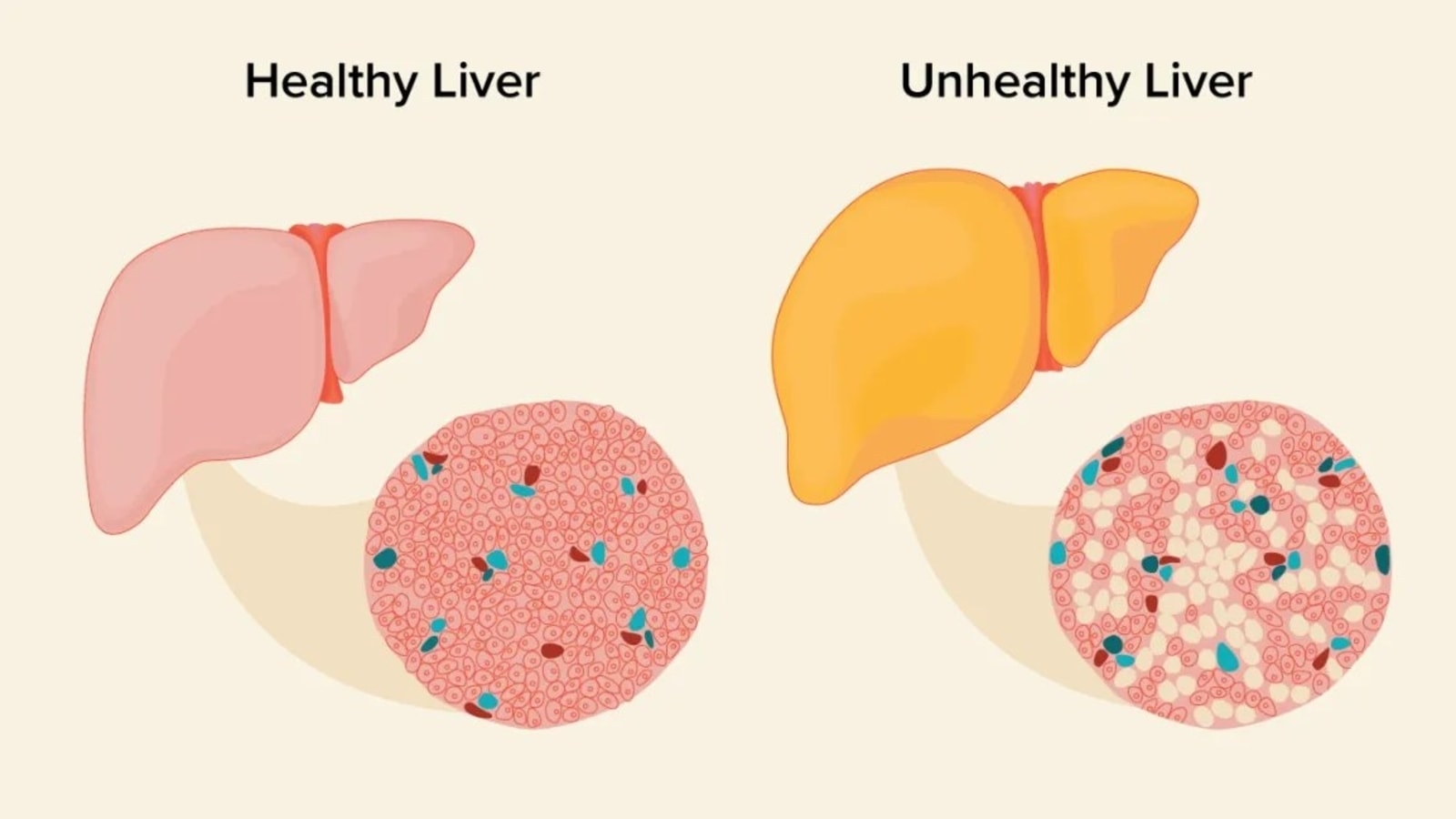To treat non-alcoholic steatohepatitis (NASH) and non-alcoholic fatty liver disease (NAFLD), doctors advise patients to lose weight as losing weight helps lessen liver fat, inflammation, fibrosis or scarring. If you are overweight or obese, health experts insist that NAFLD and NASH can be improved through losing weight by choosing nutritious foods, controlling portion sizes and engaging in physical activity.
Fat in the liver can be reduced by losing at least 3 to 5 per cent of your body weight and if you want to lessen liver inflammation, you might need to drop up to 10% of your body weight. Over the course of a year, doctors advise progressively decreasing 7 per cent or more of your body weight.
However, NAFLD may become worse if you lose a lot of weight quickly by fasting—not eating or drinking anything than water. Although most people’s livers contain some fat, fatty liver disease can be identified when the liver’s fat content exceeds 5% and this disorder is known as non-alcoholic fatty liver disease, which is most frequently connected to obesity and certain eating habits if it isn’t caused by liver damage from excessive drinking.
In an interview with HT Lifestyle, Dr Vikram Raut, Director of Liver Transplantation and HPB Surgery at Medicover Hospitals in Navi Mumbai, talked about the damages caused by excess fat to the liver and revealed, “The extra fat may accumulate in the liver of certain individuals without causing any liver disease. However, excess liver fat causes chronic liver inflammation in one in twenty individuals. Non-alcoholic steatohepatitis, or NASH (steato- meaning linked to fat and “hepatitis” means inflammation of the liver), is the name given to this illness.”
He highlighted, “Chronic inflammation can cause persistent harm to the liver, just like other liver diseases like viral hepatitis or alcohol-related liver disease, which results in fibrosis, or liver scarring. Regardless matter the aetiology, severe fibrosis is referred to as cirrhosis. Cirrhosis patients are at risk for liver cancer and failure, and they may require a liver transplant.”
Asserting that weight loss is the key to preventing complications of fatty liver, he said, “The initial course of therapy involves diet and exercise. It is advised to engage in heart-pumping activities for at least 150 minutes per week. The greatest diets are ones that prioritise veggies and whole meals, while it is unclear which is optimum. NASH patients must safeguard their livers from any additional sources of liver inflammation. This entails refraining from alcohol and ensuring that you have had the hepatitis A and B vaccines. In order to lower the risk of heart disease and strokes, anyone with NASH should also recognise and treat any specific components of the metabolic syndrome they may have.”
Diet modifications
The fatty liver disease frequently has obesity as an underlying cause and experts advise decreasing between 3% and 5% of your body weight, if you are obese or overweight. You may be able to reduce the inflammation brought on by fatty liver disease and the amount of fat in your liver by losing this much weight. Dr Vikram Raut suggested you can follow the diet modifications listed below to treat fatty liver:
- Limit your daily consumption of fat to the recommended amount.
- Steer clear of fats like trans and saturated which are more dangerous.
- Pick omega-3 fatty acids, almonds, avocados, or extra virgin olive oil as your preferred sources of unsaturated fats.
- Avoid consuming too many carbohydrates, such as too much sugar.
- Avoid consuming foods that are heavily sweetened, especially those that contain simple sugars like fructose. These include packaged sweets and beverages with added sugar.
- It’s crucial to shed pounds gradually. Your liver illness might get worse if you lose weight too soon. Experts advise gaining one to two pounds every week.
- Discuss a safe pace of weight reduction with a doctor.
He concluded, “Dietary changes and lifestyle adjustments that promote fat loss and reduce inflammation are necessary for treating fatty liver disease. Not only can they help lead a better lifestyle and help you lose liver fat, additionally, but they will also enhance your general health and may lessen the prevalence of other obesity-related diseases including diabetes. Consult a medical professional about your chances of developing fatty liver disease and, if feasible, how to treat it.”


